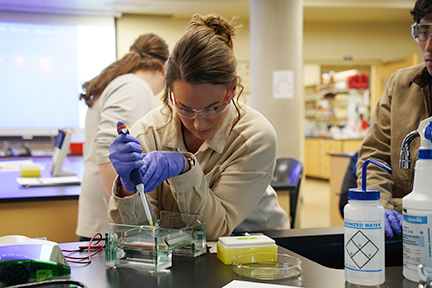Biology
 The WVC Biology Department is committed to offering comprehensive courses that promote
understanding of life in all its forms. Courses range from those designed for the
non-science major to Allied Health prerequisites and Biology major transfer students.
The department offers a wide variety of courses designed to meet the general educational,
pre-professional and overall academic goals of WVC students.
The WVC Biology Department is committed to offering comprehensive courses that promote
understanding of life in all its forms. Courses range from those designed for the
non-science major to Allied Health prerequisites and Biology major transfer students.
The department offers a wide variety of courses designed to meet the general educational,
pre-professional and overall academic goals of WVC students.
Course outcomes
Upon completion of these courses, successful students will (be able to):
- Demonstrate understanding of theories and application of concepts pertinent to Biology.
- Demonstrate the ability to evaluate biological data and identify reliable sources of scientific information.
- Apply the scientific method and problem-solving skills appropriate to Biological phenomena.
- When applicable, know how to utilize and manipulate laboratory equipment, specimens and supplies to investigate Biological phenomena in the lab setting.


